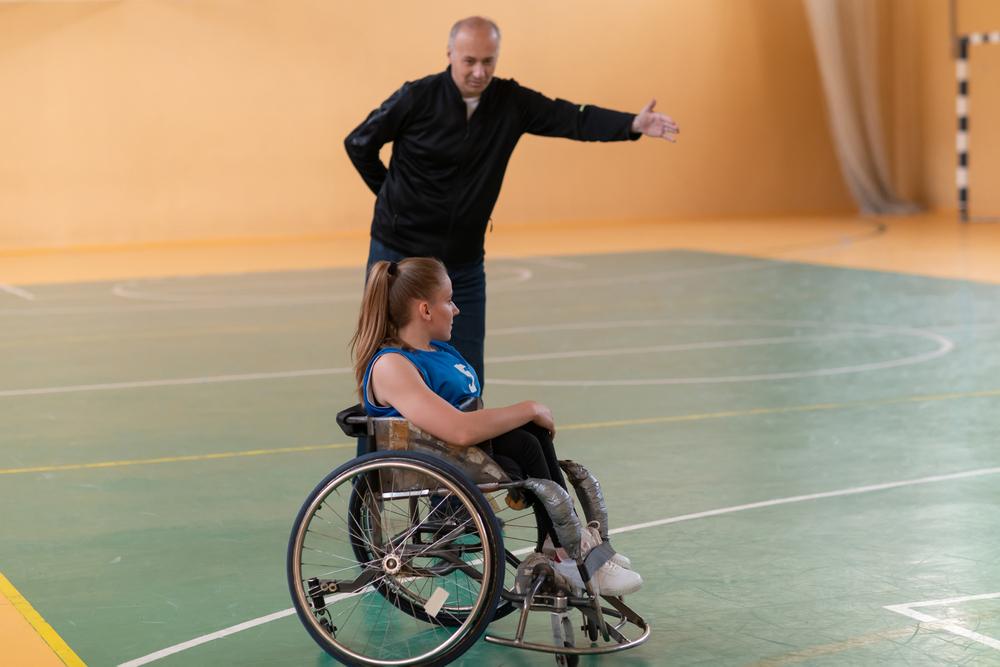 Being a culture chameleon, or being able to adapt to different environments and social groups, is a skill that often benefits student-athletes who find themselves in a wide range of sport environments. And while the ability to be flexible is important, staying true to your core values and maintaining a sense of self are also critical to both sport success and personal well-being.
Being a culture chameleon, or being able to adapt to different environments and social groups, is a skill that often benefits student-athletes who find themselves in a wide range of sport environments. And while the ability to be flexible is important, staying true to your core values and maintaining a sense of self are also critical to both sport success and personal well-being.
Dr. Charron Sumler, a TrueSport Expert and the Assistant Director of Sport Psychology and Wellness Services at The Ohio State University, understands the balancing act and often works with athletes to help them find this equilibrium.
“Athletes are constantly shifting between environments. You’re potentially thinking about who you’re expected to be on your club team, your school team, maybe a national level team—while also thinking about what could happen as you transition to college,” says Sumler. As more athletes are considering NIL (name, image, and likeness) deals at younger ages, they add the pressure of answering to sponsors and their expectations. And that’s just sports! Student-athletes are also shifting to accommodate for different classroom cultures, friend groups, and employment situations. It’s easy to lose yourself entirely in the effort to meet everyone else’s expectations.
“Being a culture chameleon means learning how to read the room and adjust to it, but not losing yourself in the process,” Sumler explains. “While it’s good to be flexible, you also need to define who you want to be as an athlete and a teammate and maintain that even as you adapt to different environments. This isn’t easy.”
Here’s how to become a culture chameleon without losing yourself in the process:
Know who you are
“Culture is intentional,” says Sumler. She recommends that ahead of the season, athletes choose three words that identify the values that they’d like to prioritize. Being able to hold onto those core values—like leadership, grit, or even joy—can help you fit into a team’s culture, while still maintaining who you are.
“If you don’t know who you are, then when you get to a new team, you’ll start acting like everyone else does on that team,” she says. “If you’re not grounded in who you are, you can lose yourself.”
“I often see collegiate athletes in their freshman year struggle with staying true to their identity,” adds Sumler. “They were often stars on their high school teams, but when they get to college and especially a competitive team, they may find themselves on the bench. Rather than leaning into the characteristics and values that got them to that collegiate team, it can be easy start mimicking others on the team in order to fit in. But the reason they were brought onto the team was because of those characteristics that they’re now suppressing.”
Be a thoughtful chameleon
As you are considering ways to support team culture without sacrificing personal identity, it can be helpful to identify overlapping values and focus on opportunities for growing those traits.
As Sumler notes, “Different environments give you opportunities to try out new versions of yourself. Do you want to try to be the leader or take on a support role? Being emotionally agile is a performance skill, and so being able to adapt to a coach’s style or to different teams’ needs is valuable, but it should also be thoughtful and intentional.”
Know that it’s okay to change
 While staying true to your values is important, Sumler points out that you are also allowed to change. “Social media and the internet have made this generation of athletes anxious about changing for fear of getting cancelled, which leads to emotional rigidity,” Sumler says. “Now, athletes are worried that if they do change their values, change their personal brand and style, or even just change their stance on something, they run the risk of being cancelled.”
While staying true to your values is important, Sumler points out that you are also allowed to change. “Social media and the internet have made this generation of athletes anxious about changing for fear of getting cancelled, which leads to emotional rigidity,” Sumler says. “Now, athletes are worried that if they do change their values, change their personal brand and style, or even just change their stance on something, they run the risk of being cancelled.”
But it’s actually healthy to regularly assess your values and shift them when appropriate, says Sumler. “Be sure you’re shifting in a way that is intentional and not just making changes in order to fit in.”
Figure out your non-negotiables
Being able to seamlessly transition between different arenas of your life, from club team to school team to student life to friendships, is a valuable skill. But that ability to shift should come with a strong sense of self, including knowing your boundaries and non-negotiables.
“As you define your values, it’s also a good idea to define your non-negotiables,” Sumler says. “If respect and growth are your values, what does that look like in a team environment? And at what point does a lack of growth or respect mean that you need to make a change? At what point will you look for a new team if the coach doesn’t uphold those values? Setting these guidelines ahead of time can help you make an informed decision later.”
Always come back to your why
“Your why, or your reason for doing your sport, should be bigger than a single role on a team or the result of any one season,” says Sumler. “If you’re not clear on why you do your sport, you’ll be more likely to leave the sport if things get challenging and hard.”
“Think about what made you love your sport and what keeps you coming back,” she adds. “Revisiting that, especially when you’re moving into another environment, can help you adapt more easily.”
Your ‘why’ can also help you realize when an environment isn’t right for you. “If your why is fun and friendship but your new club team is focused on winning at all costs, maybe that particular team is not a good fit,” says Sumler. “But if your goal is gaining skills that will help you get a scholarship to play in college, then that team may be worth the stress because it will push you to grow. Your ‘why’ is the most helpful tool for navigating difficult situations.”
_____________________________
Takeaway
Athletes have to be culture chameleons as they juggle multiple teams and sporting environments, but this isn’t a bad thing—as long as the athlete understands their primary values and is able to stay true to their core sense of self.



